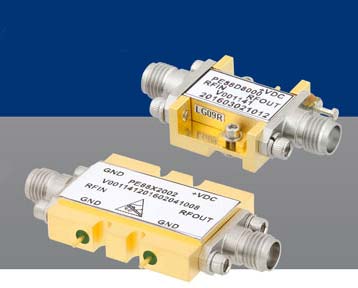As part of the many use cases of multipliers and dividers, isolation, harmonic suppression, and phase noise characteristics are important factors to consider when selecting a multiplier or divider.
Isolation describes how well the signals input into the multiplier or divider are prevented from leaking into the output, while harmonic suppression describes how well the multiplier or divider design prevents harmonics of the input signal from appearing at the output. Both factors are critical, as they directly impact the usability of a multiplier or divider device.
Additive phase noise and noise performance of a multiplier or divider are important for signal generation and modulation circuitry that is noise, phase noise, or interference limited, as these parameters describe what the device adds to an input signal when generating the output signal.
The amount of signal power needed to drive the multiplier or divider, or necessary signal input power for proper operation, may also be a factor to consider, as some multipliers and dividers require substantial input powers.
Many test and measurement grade precision signal generators, and arbitrary waveform generators, may not produce the necessary signal strength to drive a multiplier or divider. Hence, an amplifier, which has its own distortion, noise, and phase noise, may be required.
Pasternak stocks a range of multipliers and dividers to address your RF system requirements. If you´re having trouble deciding which unit is best for your application, be sure to contact Pasternack’s expert technical support staff for assistance!

